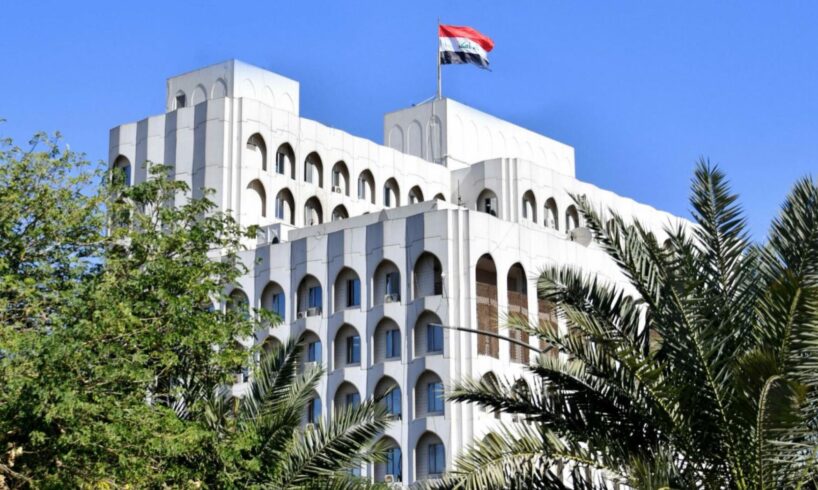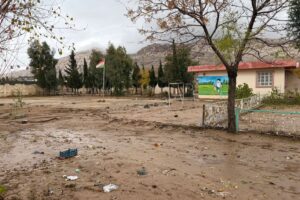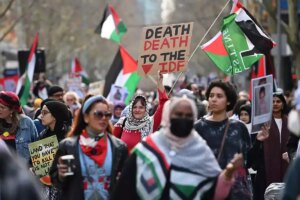
2025-07-31T23:08:06+00:00
font
Enable Reading Mode
A-
A
A+
Shafaq News
Since 2003, every new list of
Iraq’s ambassadorial nominees has landed with a thud—sparking political
squabbles, public outcry, and fresh controversy with every cycle. Observers
agree that these lists have seldom adhered to professional standards. Instead, they
have often reflected political horse-trading among the country’s dominant
parties and factions.
Under Iraq’s power-sharing
system—based on sectarian, ethnic, and partisan balance—diplomatic posts,
including ambassadorships, have become part of a broader power-distribution
mechanism shaping the state.
According to this unofficial
arrangement, each party receives a share of diplomatic posts and nominates
individuals closely affiliated with it—either from within the party, their
families, or loyal circles.
In previous terms, these
appointments raised serious questions, especially when names leaked showing
nominees with no diplomatic qualifications or political experience. Some
individuals were granted ambassadorships as political rewards or in exchange for
internal party concessions.
Repeated notes from Iraq’s Board
of Supreme Audit and the Ministry of Foreign Affairs pointed to weak
qualifications or a mismatch in expertise. However, such objections were
frequently sidelined by political influence.
The latest list, reviewed by
Shafaq News but not officially confirmed by the Iraqi government, appears to
follow this same path. It includes dozens of names for ambassadorial roles,
diplomatic missions, and attaché posts. A notable number of candidates are reportedly
sons or close relatives of powerful political figures—some barely past the age
of thirty, with no diplomatic background or professional record to justify
their nomination.
Backroom Deals and
Parliamentary Pushback
The list surfaced as Iraq’s current
parliamentary term nears its end. Lawmaker Amer al-Fayez, a member of the
Foreign Relations Committee, described the process as a “prearranged political
agreement.”
Speaking to Shafaq News, he
revealed that the lists were prepared in advance to reflect sectarian and
partisan balances, “where loyalty outweighs qualifications.”
Al-Fayez’s comments align with
concerns that the lists could be quietly passed during a session without being
formally placed on the agenda. MP Raed al-Maliki expressed strong opposition to
such methods, warning against a repeat of last year’s vote that approved 112
ambassadorial appointments at once. “As if Iraq has no crisis of competence or
representation,” he said.
Fellow committee member Mukhtar
al-Moussawi told Shafaq News that the committee has “no actual executive or
oversight powers.” He explained that the names arrive pre-approved from the
government, and that political forces—particularly those within the
Coordination Framework—retain veto power to block any objection from
Parliament.
“We’re merely recipients,”
al-Moussawi added. “The names are read out during the session, and we have no
power to exclude unqualified candidates or question who stands behind the
nominations.”
‘Political Households’ Take
the Lead
The lists have sparked broad
public and political backlash, particularly over reports that several nominees
are close relatives of prominent political figures, nominated simply for being
part of the “political household.”
MP Omran al-Karkoushi
acknowledged that the practice has become overt. Shares are now distributed
among the blocs, and then the lists are passed in Parliament as a formality.
“We have candidates who lack the basic qualifications—some don’t even have a professional
résumé to justify their appointment.”
Political analyst and academic
Ahmed Youssef went further, calling the situation “a disaster for Iraq’s
international image.” He pointed out, “A diplomat should reflect the state. But
if loyalty trumps expertise, how will the world understand what Iraq stands
for?”
Youssef warned that the trend
could lead to “diplomatic isolation” and undermine Iraq’s global
relationships—at a time when Baghdad needs strong, reliable allies more than
ever.
Legal Loopholes and Constitutional
Concerns
Legal expert Abbas Hadi
highlighted another dimension to the issue: appointments are often made “by
proxy,” meaning nominees assume their ambassadorial roles without formal
parliamentary approval. “This tactic is used to avoid parliamentary battles,”
Hadi explained. “It allows dominant parties to push through their nominees
without public consensus.”
Hadi cautioned that this maneuver
not only violates constitutional norms but also undermines Article 16 of Iraq’s
constitution, which guarantees equal opportunity for all citizens. The article
stipulates that the state must take necessary steps to ensure this right is
upheld.
At a time when protecting Iraq’s
political and economic interests abroad is more critical than ever, lawmakers
and analysts alike warn that such practices risk severely weakening Iraq’s
diplomatic corps and eroding its international standing.
Written and edited by Shafaq News staff.





